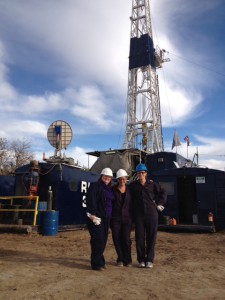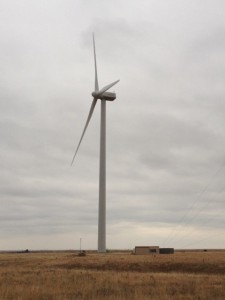5th November 2012 USA
Mountain West energy pragmatism
Every time I have the good fortune to venture outside the Beltway, I am amazed at the sheer amount of interesting and innovative technological and policy-related work going on around the US energy industry.
 A recent visit to Colorado did not disappoint. The state is blessed with an abundance of energy resources, both fossil and renewable, as well as a highly educated workforce and several prestigious national laboratories. But there’s something about the state’s approach to energy that resonated from my visit: its unique brand of pragmatism.
A recent visit to Colorado did not disappoint. The state is blessed with an abundance of energy resources, both fossil and renewable, as well as a highly educated workforce and several prestigious national laboratories. But there’s something about the state’s approach to energy that resonated from my visit: its unique brand of pragmatism.
Colorado has an abundance of unconventional oil and natural gas trapped in shale formations—rock found in loosely-packed layers close to the surface—in several different locations throughout the state. Most drilling takes place along the Front Range of the Colorado Rockies, which is also where the majority of the state’s population resides.
So Colorado’s approach to regulating shale oil and gas naturally places a high priority on protecting water and air quality and promoting business transparency. Of course, it’s not without contention and controversy.
But Colorado’s experience is characterised by open discussion and practical compromise.
 Across the board, observers attribute much of this success to the pragmatic approach of Governor John Hickenlooper, which is no doubt partly a product of his own training as a geologist.
Across the board, observers attribute much of this success to the pragmatic approach of Governor John Hickenlooper, which is no doubt partly a product of his own training as a geologist.
One controversial practice in evidence around the state is hydraulic fracturing (fracking), in which pressurized water is used to break apart oil- or gas-bearing shale. We went to see a fracking site in action about an hour outside of Denver. Both oil and gas are produced at this well, and the environmental impacts are certainly not negligible – one of the first I noticed was noise and fumes coming from generators running on the site.
Of keen interest to me was the fact that this well (in common, from what we could tell, with most in Colorado) sells all the gas it produces. In many other places in the US it is simply vented or flared into the atmosphere, because the pipeline and processing infrastructure is not there to take it to market, helping to make the US one of the world’s top five flaring countries.
We also wanted to see some of Colorado’s wealth of renewables, so after the fracking site it was off to the National Renewable Energy Laboratory (NREL) in the city of Golden to the west of Denver.
NREL scientists and staff gave an overview of the wide range of renewable energy options available in the US, and specifically in Colorado. From highly advanced bio and synthetic fuels to energy storage to wind and solar, NREL is developing and demonstrating the next generation of renewable power – it was a truly exciting and eye-opening visit.
 NREL’s National Wind Technology Centre, which boasts the largest turbine in North America, demonstrated quite clearly just how rich in wind resources the state is. Indeed, Colorado appears poised to take advantage of its wind and other renewable sources as it examines its broader energy policy.
NREL’s National Wind Technology Centre, which boasts the largest turbine in North America, demonstrated quite clearly just how rich in wind resources the state is. Indeed, Colorado appears poised to take advantage of its wind and other renewable sources as it examines its broader energy policy.
The state’s renewables standard—its rules on how much of the overall energy mix must come from renewable sources—is already the second-most stringent in the country, and is driving investment in clean energy.
Could Colorado’s approach to energy be a model for the nation?
If and when the federal government looks to formulate a comprehensive approach to energy in the US, I certainly think the Rocky Mountain State’s successes with energy pragmatism could be translated more widely.